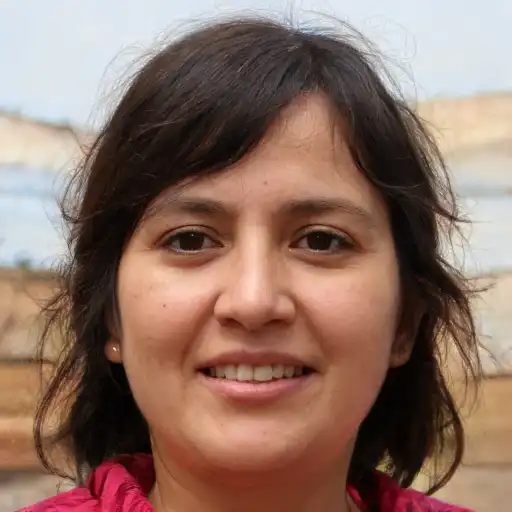Obesity remains a growing concern in the United States, and cities like Atlanta are no exception. With busy urban lifestyles, limited access to nutritious foods in some neighborhoods, and sedentary routines, many residents find it difficult to maintain a healthy weight. But amid this public health struggle, a new solution is emerging — community-based weight loss clinics in Atlanta that take a holistic, localized approach to helping residents shed pounds and reclaim their health.
This article explores how these clinics are redefining what weight loss support looks like, how they’re integrating into the broader healthcare system, and why their impact goes beyond just dropping a few pounds. From behavioral therapy to food access programs, we’ll dive into the community-focused strategies making a real difference.
1. Understanding Atlanta’s Weight Crisis: The Local Factors at Play
Atlanta, a city known for its culture and hospitality, also struggles with one of the highest obesity rates in Georgia. According to data from the Georgia Department of Public Health, over 30% of adults in the metro Atlanta area are classified as obese. But what’s driving these numbers?
Several local factors contribute:
- Food Deserts: Many low-income neighborhoods lack access to fresh fruits, vegetables, and lean proteins. Fast food becomes the default, leading to poor dietary habits.
- Transportation Limitations: Car-centric city planning often discourages walking or biking, reducing daily physical activity.
- Healthcare Gaps: Many Atlantans either lack health insurance or have limited access to preventive care, making weight management services inaccessible or underutilized.
It’s clear that weight gain isn’t simply about eating too much — it’s about the environment, access, and support. This is where a community-based weight loss clinic in Atlanta comes in.

2. The Rise of Community-Based Weight Loss Clinics: A New Model of Care
Traditional weight loss centers have often been seen as luxury options, available only to those who can afford expensive consultations and personalized diet plans. But a shift is happening.
Community-based clinics are typically nonprofit or low-cost health centers that aim to address the root causes of obesity through multi-pronged strategies. These clinics often include:
- Nutrition Counseling with Cultural Relevance
Atlanta’s diverse population requires meal planning that reflects cultural food preferences. Clinics employ dietitians who understand the nuances of Southern, African-American, Hispanic, and other ethnic diets. - Integrated Behavioral Health
Emotional eating, stress, and mental health are deeply tied to weight gain. Many clinics have therapists and counselors on-site who work hand-in-hand with dietitians and doctors. - Group Support and Accountability Programs
Weekly group check-ins, cooking classes, and fitness groups foster a sense of community, allowing patients to build social networks that support healthy habits. - Sliding Scale Payment Models
By tailoring costs to income levels, these clinics ensure affordability for underserved populations, often working with Medicaid and other assistance programs.
In the context of the weight loss clinic Atlanta landscape, this model has proven especially effective in creating sustainable change.
3. Technology Meets Wellness: How Atlanta Clinics Use Digital Health Tools
To meet the needs of modern patients, many of Atlanta’s innovative clinics are incorporating digital health solutions. This blend of traditional care with tech-based tools is helping reach more residents than ever before.
Here’s how:
- Mobile Health Apps for Tracking and Engagement
Clinics provide app-based interfaces that allow patients to track food intake, log physical activity, and monitor weight changes in real-time. These tools can be customized with culturally relevant recipes and Atlanta-specific grocery store suggestions. - Virtual Consultations
Especially important in underserved areas or for patients with limited mobility, telehealth options allow dietitians and physicians to offer regular check-ins remotely. - Wearable Device Integration
Some clinics partner with programs that provide discounted fitness trackers, enabling real-time biometric feedback and promoting accountability. - SMS-Based Reminders
For patients who may not own smartphones, basic text-based reminders for appointments or motivational messages can be a simple yet effective tool.
These technologies make it easier for patients to stay engaged with their health goals without constant in-person visits, reducing dropout rates and improving long-term outcomes.
4. The Role of Policy and Public Health Partnerships
Another key element driving success in Atlanta’s weight loss ecosystem is the partnership between clinics, local governments, and public health initiatives. These collaborations allow for a wider net of support and ensure that weight loss efforts are supported at every level.
For instance:
- City Grants for Nutrition Programs
Some Atlanta clinics have received funding to run farmer’s markets, cooking classes, or free community fitness events. - Collaboration with Public Schools
Clinics often work with schools to introduce healthy eating education and BMI monitoring programs, creating a feedback loop between children’s health and their families’ wellness. - Workforce Wellness Initiatives
Partnering with local businesses, some clinics offer weight loss programs as part of corporate wellness, reaching working adults who may not otherwise engage with health services.
These policy-driven partnerships are crucial in creating systemic change and addressing obesity on a macro scale.
5. Real Stories, Real Results: How Local Clinics Are Changing Lives
The effectiveness of Atlanta’s community-based weight loss clinics is best seen through the lives they change.
Take Maria, a 42-year-old single mother in Southwest Atlanta, who joined her local clinic’s weight loss program after struggling with high blood pressure and prediabetes. Through biweekly meetings with a dietitian, therapy sessions addressing her stress eating, and participation in a subsidized produce program, she lost 38 pounds in one year — and more importantly, regained energy and self-confidence.
Or James, a 57-year-old construction worker who, thanks to virtual consultations and SMS reminders, was able to lose 25 pounds while juggling two jobs. He now leads a Saturday walking group organized by his clinic.
These stories highlight the power of accessible, culturally competent, and community-rooted weight loss care. It’s not just about slimmer waistlines — it’s about restoring dignity and control over one’s health.
Conclusion
The obesity challenge in Atlanta is complex, but the solutions don’t have to be. Community-based weight loss clinics in Atlanta are proving that by prioritizing accessibility, cultural competence, and integrated care, it’s possible to reverse the city’s weight crisis one patient at a time.
As digital tools, public policy, and grassroots support continue to merge, these clinics are laying the groundwork for a healthier, more equitable Atlanta. Whether you’re a resident seeking help or a healthcare professional looking to support meaningful change, the blueprint is here — and it’s working.

Mary Burns is a dedicated writer focusing on health and fitness topics. With a passion for promoting wellness and vitality, Mary shares her knowledge and expertise through engaging and informative blog posts.




